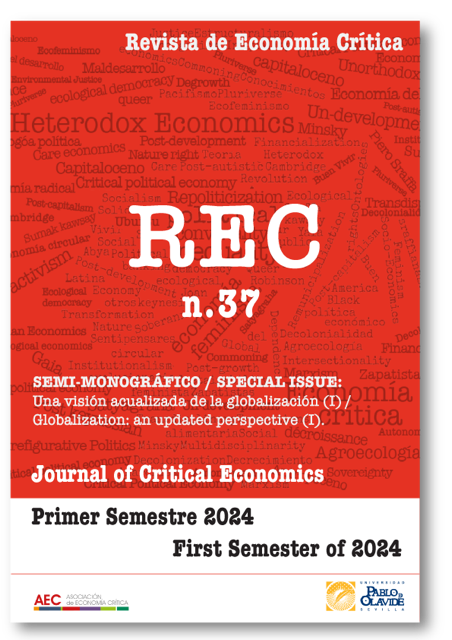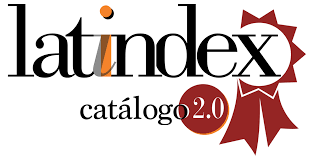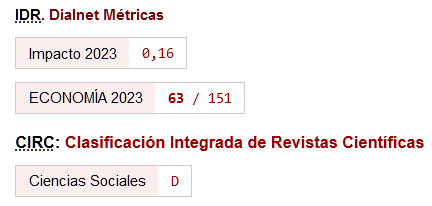Transformative circular economy and neoliberal (and anthropocentric) globalisation
in the footsteps of international flows and transport from extraction to waste
DOI:
https://doi.org/10.46661/rec.10706Keywords:
productive and commercial globalization, anthropocenic globalization, international transport, material footprint, emissions, transformative circular economy+Abstract
This paper analyses the complex and contradictory relationships between the process of neoliberal globalisation - accelerator of the anthropocene - and the proposals for a transformative circular economy. The process of neoliberal globalisation - driven by finance - of recent decades has expanded international flows and, therefore, transport in all its forms and scales (international and local), with the consequent consumption of materials and energy in its activity, in the production of the stock of equipment, means of transport, infrastructures, accelerating the footprint of materials and emissions. This expansion lies not only in an increase in international trade in raw materials or final goods, but also in the growing global fragmentation of production, the globalisation of consumption patterns, the instant consumption (platforms) and, finally, of post-consumption and waste flows. This article analyses the different dimensions of the material articulation of productive and commercial globalisation from the perspective of transformative CE, paying special attention to the role of international transport (maritime and air) and associated infrastructures, both in terms of CO2 emissions, material footprint, secondary material and waste flows, etc. The current linear economic model must be transformed on the basis of circular economy strategies, which articulate the global and the local on a new basis, overcoming the greening strategies - or simple "green washing" - formulated by the finance-led green growth model.
Downloads
References
Aglietta, Michel (dir.) (2018). Transformer le régime de croissance. Paris, Rapport Institut cdc pour la Recherche.
Aklin, Michael (2016). Re-exploring the Trade and Environment Nexus Through the Diffusion of Pollution, Environmental & Resource Economics. Environmental and Resource Economics 64, (4) 663-682. doi: https://doi.org/10.1007/s10640-015-9893-1.
Babinker, Mustafa (2005). Climate change policy, market structure, and carbon leakage. Journal of International Economics 65 (2), 421-445. doi: https://doi.org/10.1016/j.jinteco.2004.01.003.
Baldé, Cornelis P., Wang, Feng, y Kuehr, R. (2016). Transboundary Movements of Used and Waste Electronic and Electrical Equipment. United Nations University, Vice Rectorate in Europe / Sustainable Cycles Programme (scycle).
Baldé, Cornelis P., D'Angelo, E., Luda, V., et al. (2022). Global Transboundary E-Waste flows Monitor 2022 United Nations University for Training and Research (UNITAR), Bonn, Germany.
Barrie, Jack, Schröder, Patrick and Marianne Schneider-Petsinger, with Richard King and Tim G. Benton (2022). The role of international trade in realizing an inclusive circular economy. Chatham House, Research Paper Environment and Society Programme September. https://www.chathamhouse.org/2022/10/role-international-trade-realizing-inclusive-circular-economy/03-overview-circular-trade.
Baumert, Nicolai, Kander, Astrid, Jiborn, M., Kulionis, V., & Nielsen, T. (2019). Global outsourcing of carbon emissions 1995-2009: A reassessment. Environmental Sciences and Policy 92, 228-236. doi: https://doi.org/10.1016/j.envsci.2018.10.010.
Basel Convention/United Nations Environment Programme (2018). Waste without frontiers II, Report 2018. www.basel.int/Portals/4/Basel%20Convention/docs/pub/WasteWithoutFrontiersII.pdf.
Beeks, Jay C. and Lambert, Thomas (2018). Addressing Externalities: An Externality Factor Tax-Subsidy Proposal. European Journal of Sustainable Development Research, 2 (2): 19. https://doi.org/10.20897/ejosdr/81573.
Blomsma, Fenna y Tennant, Mike (2020). Circular Economy: Preserving Materials or Products? Introducing the Resource States framework. Resources, Conservation and Recycling, 156, 104698
Böhm, Staffen, Misoczky, Maria C., y Mook, Sandra (2012). Greening Capitalism? A Marxist Critique of Carbon Markets. Organization Studies, 33(11): 1617-1638.
Bradshaw, Corey J. A., Ehrlich, Paul R., Beattie, Andrew, Ceballos, Gerardo, Crist, E., Diamond, J., Dirzo, R., Ehrlich, A. H., Harte, J., Harte, M. E., Pyke, G., Raven, P. H., Ripple, W. J., Saltré, F., Turnbull, C., Wackernagel, M., y Blumstein, D. T. (2021, 13 de enero). Underestimating the Challenges of Avoiding a Ghastly Future. Frontiers in Conservation Science.
Brundtland, Gro H. (1987). Our Common Future. Oxford University Press. [Trad.: 1988. Nuestro futuro común. Alianza.]
Cadarso, María Ángeles, López, Luis A., Gómez, Nuria, & Tobarra, María Ángeles (2010). CO2 emissions of international freight transport and offshoring: Measurement and allocation. Ecological Economics 69, 1682-1694. doi: https://doi.org/10.1016/j.ecolecon.2010.03.019.
Calisto, Martin, Vermeulen, W. J. V., y Salomone, R. (2020). A Typology of Circular Economy Discourses: Navigating the Diverse Visions of a Contested Paradigm. Resources, Conservation & Recycling, 161, 104917.
Campos-Romero, Hugo, Mourao, P.R. & Rodil-Marzábal, Óscar (2023). Is there a pollution haven in European Union global value chain participation? Environ Dev Sustain (2023). https://doi.org/10.1007/s10668-023-03563-9.
Chatham House (2022). Circular Economy and trade, https://circulareconomy.earth/publications/trade-and-circular-economy.
Circle Economy (2020). The Circularity Gap Report 2020. Platform for Accelerating the Circular Economy. https://pacecircular.org/sites/default/files/2020-01/Circularity%20Gap%20Report%202020.pdf.
Circle Economy (2023a). The Circularity Gap Report 2023. https://www.circularity-gap.world/2023.
Circle Economy (2023b). The Circularity Gap Report América Latina y Caribe. https://www.circularity-gap.world/lac/es.
Clarke, Daniel et al. (2022). CO2 Emissions from air transport, OECD, SDD/DOC 14 (2022)4.
Comisión Europea (2018). Un planeta limpio para todos. La visión estratégica europea a largo plazo de una economía próspera, moderna, competitiva y climáticamente neutra. Comunicación de la Comisión. COM(2018) 773 final.
Comisión Europea (2019). Socio-Economic Analysis of the Repair Sector in the EU. Study to Support Eco-design Measures to Improve Reparability of Products. Publications Office of the European Union. doi: 10.2779/01503.
Comisión Europea (2020). Nuevo plan de acción para la economía circular por una Europa más limpia y más competitiva. Comunicación de la Comisión al Parlamento Europeo, al Consejo, al Comité Económico y Social Europeo y al Comité de las Región. Bruselas, 11.3.2020. COM(2020) 98 final.
Copeland, Brian, & Taylor, Scott (2004). Trade, Growth and the Environment. Journal of Economic Literature 42, 7-71. Obtido de https://www.jstor.org/stable/3217036.
Crippa, Monika, Guizzardi, D., Muntean, M., Schaaf, E., Solazzo, E., Monforti-Ferrario, F., . . . Vignati, E. (2020). Fossil CO2 emissions of all world countries - 2020 Report, EUR 30358 EN. Luxembourg: Publications Office of the European Union. doi: http://dx.doi.org/10.2760/143674.
Cristea, Anca, Hummels, David, Puzzello, Laura, & Avetisyan, Misak (2011). Trade and the greenhouse gas emissions from international freight transport. NBER Working Paper Series 17117, 1-55. doi: https://doi.org/10.1016/j.jeem.2012.06.002.
Crutzen, Paul J. y Stoermer, Eugene F. (2000). The "Anthropocene", Global Change Newsletter (41), 17.
Daly, Herman E. (2009). From a Failed Growth Economy to a Steady State Economy. En Gerber, F., y Steppacher, R. (eds.), Towards an Integrated Paradigm in Heterodox Economics Alternative Approaches to the Current Eco-Social Crises. Palgrave MacMillan.
Daly, Herman E., y Cobb, J. B. (1993). Para el bien común: reorientando la economía hacia la comunidad, el ambiente y un futuro sostenible. Fondo de Cultura Económica.
Dolter, Breit, y Victor, Peter A. (2019). Handbook on Growth and Sustainability. Edward Elgar.
Ederington, Josh, & Minier, Jenny (2003). Is environmental policy a secondary trade barrier? An empirical analysis. Canadian Journal of Economics 36 (1), 137-154. doi: https://doi.org/10.1111/1540-5982.00007
Ellen MacArthur Foundation (2014). Towards the Circular Economy (vol. 3. Accelerating the Scale-up across Global Supply Chains). https://www.ellenmacarthurfoundation.org/publications.
Eurostat (2024, mayo). Circular economy indicators. https://ec.europa.eu/eurostat/databrowser/view/CEI_SRM030__custom_4515826/bookmark/table?lang=en&bookmarkId=89bebabe-6d9c-4a7e-b969-6a98c780f754#:~:text=Eurostat%C2%A0(-,env_ac_cur,-).
Eyring, Veronika, Isaksen, Ivar, Bernsten, Terje, Collins, William, Corbett, J., Endresen, O., . . . Stevenson, D. (2010). Transport impacts on atmosphere and climate: Shipping. Atmospheric Environment 44, 4735-4771. doi: https://doi.org/10.1016/j.atmosenv.2009.04.059.
Eyring, Veronika, Köhler, H., Aardenne, J., & Lauer, A. (2005). Emissions from international shipping: the last 50 years. Journal of Geophysical Research 110, 1-12. doi: https://doi.org/10.1029/2004JD005620
Foster, John Bellamy et al. (2010). The Ecological Rift: Capitalism's War on the Earth quantity. N. York, Monthly Review Press.
Foster, John Bellamy y Clark, Brett (2023). El robo de la naturaleza. El capitalismo y la fractura ecológica. Bellaterra Ediciones.
Fouquet, Roger (ed.) (2019). Handbook on Green Growth. Edward Elgar.
Fullbrook, Edward, Morgan, Jamie., Daly, Herman, y Farrell, K. N. (2019). Economics and the Ecosystem. World Economics Association.
Grossman, Gene, y Krueger, Alan (1995). Economic Growth and the Environment. The Quarterly Journal of Economics, 110 (2): 353-377. https://doi.org/10.2307/2118443.
Gurtu, Amulya, Searcy, Cory, & Jaber, M. (2017). Emissions from international transport in global supply chains. Management Research Review 40, 53-74. doi: https://doi.org/10.1108/MRR-09-2015-0208.
Hickel, Jason (2020). Quantifying national responsibility for climate breakdown: an equality-based attribution approach for carbon dioxide emissions in excess of the planetary boundary. The Lancet, 4 DOI:https://doi.org/10.1016/S2542-5196(20)30196-0.
Hickel, Jason, O'Neill, D.W., Fanning, A.L. & Zoomkawala, H. (2022). National responsibility for ecological breakdown: a fair-shares assessment of resource use, 1970-2017. The Lancet Planet Health, 6, e342-349.
Hickel, Jason (2023). Menos es más. Como el decrecimiento salvará el mundo. Madrid, Capitan Swing Libros.
Hobson, Kate (2016). Closing the Loop or Squaring the Circle? Locating Generative Spaces for the Circular Economy. Progress in Human Geography, 40 (1): 88-104.
Hobson, Kate (2021). The limits of the loops: critical environmental politics and the Circular Economy. Environmental Politics, 30 (1-2): 161-179. https://doi.org/10.3389/fcosc.2020.615419https://doi.org/10.3389/fcosc.2020.615419.
Huisman, Jaco et al. (2015). Countering WEEE Illegal Trade (CWIT) Summary Report, Market Assessment, Legal Analysis, Crime Analysis and Recommendations Roadmap. www.cwitproject.eu
IEA (2023). CO2 Emissions from Fuel Combustion Statistics: Greenhouse Gas Emissions from Energy. https://doi.org/10.1787/f154feff-en
IMO (2015). Third IMO GHG Study 2014. London: International Maritime Organization.
IMO (2020). Fourth IMO GHG Study. Delft: IMO.
Intergovernmental Panel on Climate Change-IPCC (2018). Global Warming of 1.5 °C. https://www.ipcc.ch/sr15/
Jackson, Tim (2009). Prosperity without Growth: Economics for a Finite Planet. Earthscan.
Kirchherr, Julian et al. (2017). Conceptualizing the circular economy: An analysis of 114 definitions. Resources, Conservation and Recycling, Volume 127, December 2017, 221-232.
Lamb, William, Wiedmann, Thomas, Pongratz, Julia, Andrew, Robbie, Crippa, Monica, Olivier, Jos, Wiedenhofer, Dominik, Mattioli, G., Al Khourdajie, A., House, J., Pachauri, S., Figueroa, M., Saheb, Y., Slade, R., Hubacek, K., Sun, L., Kahn Ribeiro, S., Khennas, S., De La Rue Du Can, S., Chapung, L., Davis, S.J., Bashmakov, I., Dai, H., Dhakal, S., Tan, X., Geng, Y., Gu, B. and Minx, J. (2021). A review of trends and drivers of greenhouse gas emissions by sector from 1990 to 2018. Environmental Research Letters, 16 (7), 073005. https://doi.org/10.1088/1748-9326/abf137
Latouche, Serge (2008). La apuesta por el decrecimiento. Icaria.
Lepawsky, Josh (2015). The Changing Geography of Global Trade in Electronic Discards: Time to Rethink the e-Waste Problem. The Geographical Journal, 181 (2): 147-159.
Llorente-González, Leandro Javier (2024). Protein for Scraps: A Study of the European Union "Circular" Raw Materials Trade. Revista Galega de Economía, 33(2), 1-32. https://doi.org/10.15304/rge.33.2.9419
López-Bermúdez, Francisco y Vence, Xavier (2023). Las actividades de reparación: proximidad, distribución territorial y contribución al desarrollo regional. En X.Vence (dir), Economía Circular Transformadora y cambio sistémico. Madrid, Fondo de Cultura Económica.
López Pérez, Sugey de J. (2024). Circular business models for the electrical and electronics equipment and e-waste sector. Measures for their dissemination and implementation in Mexico. Revista Galega De Economía, 33(2), 1-23. https://doi.org/10.15304/rge.33.2.9455
Malik, Arunima, & Lan, Jun (2016). The role of outsourcing in driving global carbon emissions. Economic Systems Research 28 (2), 168-182. doi: https://doi.org/10.1080/09535314.2016.1172475
Malinauskaite, Jurgita y Erdem, Fatih B. (2021). Planned Obsolescence in the Context of a Holistic Legal Sphere and the Circular Economy. Oxford Journal of Legal Studies, 41(3): 719–749, https://doi.org/10.1093/ojls/gqaa061
Martínez Alier, Joan, y Roca Jusmet, Jordi (2013). Economía ecológica y política ambiental. Tercera edición. Fondo de la Cultura Económica.
Marx, Karl (s. f.) [1894]. O Capital. Libro III. Editora Civilização Brasileira.
Mastini, Ricardo, Kallis, Giorgos, y Hickel, Jason (2021). New Green Deal without Growth? Ecological Economics, 179.
Meadows, Donella H., Meadows, Dennis L., Randers, Jorgen, y Behrens III, William W. (1972). The Limits to Growth. A Report for the Club of Rome's Project on the Predicament of Mankind. Universe Books.
Michel, Bernhard (2013). Does offshoring contribute to reducing domestic air emissions? Evidence from Belgian manufacturing. Ecological Economics 95, 73-82. doi: https://doi.org/10.1016/j.ecolecon.2013.08.005
Mongo, Michelle, Belaïd, Faleh, & Ramdani, Boumediene (2021). The effects of environmental innovations on CO2 emissions: Empirical evidence from Europe. Environmental Science & Policy 118, 1-9. doi: https://doi.org/10.1016/j.envsci.2020.12.004
Moore, Jason W. (ed.) (2016). Anthropocene or Capitalocene? Nature, History, and the crisis of Capitalism. PM press.
Naredo, José Manuel (2022). La crítica agotada. Claves para un cambio de civilización. Siglo XXI España Editores.
O'Neill, Daniel W., Fanning, A.L., Lamb, W.F., and Steinberger, J.K. (2018). A good life for all within planetary boundaries. Nature Sustainability 1, 88-95. doi: 10.1038/s41893-018-0021-4
OECD/ITF (2015). The Carbon Footprint of Global Trade. OECD/ITF 2015. https://www.itf-oecd.org/sites/default/files/docs/cop-pdf-06.pdf
Organización para la Cooperación y el Desarrollo Económicos, Banco Mundial y Programa de las Naciones Unidas para el Medio Ambiente (2018). Financing Climate Futures: Rethinking Infrastructure. ocde.
OWID-Our World in Data (2023). CO2 emissions. https://ourworldindata.org/grapher/CO2-emissions-and-gdp-long-term?time=1890..latest
Programa de las Naciones Unidas para el Medio Ambiente-PNUMA (2020). Informe sobre la brecha en las emisiones del 2020. https://www.unep.org/emissions-gap-report-2020
Raworth, Kate (2017). Doughnut Economics: Seven Ways to Think Like a 21st-Century Economist. Chelsea Green Publishing.
Richardson, Katherine, et al. (2023). Earth beyond six of nine planetary boundaries. Science Advances 9, 37 (2023). DOI: 10.1126/sciadv.adh2458.
Roca, Jordi y Padilla, Emilio (2021). Globalización y responsabilidad en los problemas ecológicos. Revista de Economía Crítica, 31, 1-18.
Rockström, Johan et al. (2009). Planetary boundaries: exploring the safe operating space for humanity. Ecology and Society 14(2): 32. [online] http://www.ecologyandsociety.org/vol14/iss2/art32/
Stahel, Walter R. (2013). Policy for Material Efficiency-Sustainable Taxation As a Departure from the Throwaway Society. Philosophical Transactions of the Royal Society A, 371 (1986), 20110567. https://doi.org/10.1098/rsta.2011.0567
UNCTAD (2019). World seaborne trade by types of cargo and by group of economies annual.
UNFCCC (June de 2019). United Nation Climate Change. Emissions from fuels used for international aviation and maritime transport. Obtido de United Nation Climate Change: https://unfccc.int/topics/mitigation/workstreams/emissions-from-international-transport-bunker-fuels#eq-2
UNEP e IRP (2018). Global Material Flows Database. http://www.resourcepanel.org/global-material-flows-database
Mastini, Ricardo, Kallis, Giorgos, y Hickel, Jason (2021). New Green Deal without Growth? Ecological Economics, 179.
Meadows, Donella H., Meadows, Dennis L., Randers, Jorgen, y Behrens III, William W. (1972). The Limits to Growth. A Report for the Club of Rome's Project on the Predicament of Mankind. Universe Books.
Michel, Bernhard (2013). Does offshoring contribute to reducing domestic air emissions? Evidence from Belgian manufacturing. Ecological Economics 95, 73-82. doi: https://doi.org/10.1016/j.ecolecon.2013.08.005
Mongo, Michelle, Belaïd, Faleh, & Ramdani, Boumediene (2021). The effects of environmental innovations on CO2 emissions: Empirical evidence from Europe. Environmental Science & Policy 118, 1-9. doi: https://doi.org/10.1016/j.envsci.2020.12.004
Moore, Jason W. (ed.) (2016). Anthropocene or Capitalocene? Nature, History, and the crisis of Capitalism. PM press.
Naredo, José Manuel (2022). La crítica agotada. Claves para un cambio de civilización. Siglo XXI España Editores.
O'Neill, Daniel W., Fanning, A.L., Lamb, W.F., and Steinberger, J.K. (2018). A good life for all within planetary boundaries. Nature Sustainability 1, 88-95. doi: 10.1038/s41893-018-0021-4
OECD/ITF (2015). The Carbon Footprint of Global Trade. OECD/ITF 2015. https://www.itf-oecd.org/sites/default/files/docs/cop-pdf-06.pdf
Organización para la Cooperación y el Desarrollo Económicos, Banco Mundial y Programa de las Naciones Unidas para el Medio Ambiente (2018). Financing Climate Futures: Rethinking Infrastructure. ocde.
OWID-Our World in Data (2023). CO2 emissions. https://ourworldindata.org/grapher/CO2-emissions-and-gdp-long-term?time=1890..latest
Programa de las Naciones Unidas para el Medio Ambiente-PNUMA (2020). Informe sobre la brecha en las emisiones del 2020. https://www.unep.org/emissions-gap-report-2020
Raworth, Kate (2017). Doughnut Economics: Seven Ways to Think Like a 21st-Century Economist. Chelsea Green Publishing.
Richardson, Katherine, et al. (2023). Earth beyond six of nine planetary boundaries. Science Advances 9, 37 (2023). DOI: 10.1126/sciadv.adh2458.
Roca, Jordi y Padilla, Emilio (2021). Globalización y responsabilidad en los problemas ecológicos. Revista de Economía Crítica, 31, 1-18.
Rockström, Johan et al. (2009). Planetary boundaries: exploring the safe operating space for humanity. Ecology and Society 14(2): 32. [online] http://www.ecologyandsociety.org/vol14/iss2/art32/
Stahel, Walter R. (2013). Policy for Material Efficiency-Sustainable Taxation As a Departure from the Throwaway Society. Philosophical Transactions of the Royal Society A, 371 (1986), 20110567. https://doi.org/10.1098/rsta.2011.0567
UNCTAD (2019). World seaborne trade by types of cargo and by group of economies annual.
UNFCCC (June de 2019). United Nation Climate Change. Emissions from fuels used for international aviation and maritime transport. Obtido de United Nation Climate Change: https://unfccc.int/topics/mitigation/workstreams/emissions-from-international-transport-bunker-fuels#eq-2
UNEP e IRP (2018). Global Material Flows Database. http://www.resourcepanel.org/global-material-flows-database
UNEP e IRP (2024). Perspectiva de recursos globales 2024. https://www.resourcepanel.org/es/informes/perspectivas-de-recursos-globales-2024
Velis, Costas A. (2014). Global recycling markets: plastic waste. A story for one player – China. ISWA Globalisation and Waste Management Task Force. https://www.researchgate.net/publication/281865813_Global_recycling_markets_plastic_waste_A_story_for_one_player_-_China_ISWA_Globalisation_and_Waste_Management_Task_Force [accessed May 15 2022].
Vence, Xavier (dir.) (2023). Economía Circular Transformadora y cambio sistémico. Retos, modelos y políticas. Fondo de Cultura Económica.
Vence, Xavier, López Bermúdez, Francisco (2023). Globalización productivo-comercial, transporte y economía circular: las emisiones (ignoradas) del transporte marítimo internacional, en Vence, X. (dir.) (2023). Economía Circular Transformadora y cambio sistémico. Retos, modelos y políticas. Fondo de Cultura Económica.
Vence, Xavier (2021). Economía Circular Transformadora, en Nogueira y Vence (dirs), Redondear la Economía Circular. Del discurso oficial a las políticas necesarias. ThomsonReuters-Aranzadi.
Vence, Xavier, y López, Sugey de Jesús (2021). Taxation for a Circular Economy: New Instruments, Reforms, and Architectural Changes in the Fiscal System. Sustainability, 13 (8), 4581. https://doi.org/10.3390/su13084581.
Vence, Xavier, y Pereira, Ángeles (2019). Eco-Innovation and Circular Business Models as Drivers for a Circular Economy. Contaduría y Administración, 64 (1): 1-19. doi: 10.22201/fca.24488410e.2019.1806.
Victor, Peter (2008). Managing without Growth: Slower by Design, not Disaster. Edward Elgar.
Ward, James D., Sutton, Paul C., Werner, Adrian D., Costanza, Robert, Mohr, S. H., y Simmons, C. T. (2016). Is Decoupling GDP Growth from Environmental Impact Possible? PLOS One, 11 (10).
Wiedenhofer, Dominik, Haas, W., Neundlinger, M., and Eisenmenger, N. (2016). Material Stocks and Sustainable Development. In Haberl, H., et al. (Eds.), Social Ecology: Society-nature Relations across Time and Space, Springer, London.
Wiedmann, Thomas, Lenzen, M., Keyßer, L.T., y Steinberger, J. K. (2020). Scientists' Warning on Affluence. Nature Communications, 11, 3107. https://doi.org/10.1038/s41467-020-16941-y.
Yamaguchi, Shunta (2021). International Trade and Circular Economy – Policy Alignment, OECD Trade and Environment Working Papers 2021/02. https://doi.org/10.1787/ae4a2176-en.
Yamaguchi, Shunta (2022). Securing reverse supply chains for a resource efficient and circular economy, OECD Trade and Environment Working Papers 2022/02. https://doi.org/10.1787/6ab6bb39-en.
Downloads
Published
How to Cite
Issue
Section
License
Copyright (c) 2024 Revista de Economía Crítica

This work is licensed under a Creative Commons Attribution 4.0 International License.
This licence allows third parties to share (copy and redistribute the material in any medium or format) and adapt (remix, transform and create from the material for any purpose, including commercial purposes), provided that authorship and first publication in this journal (The Journal, DOI of the work) is acknowledged, a link to the licence is provided, and it is stated whether changes have been made to the work.







